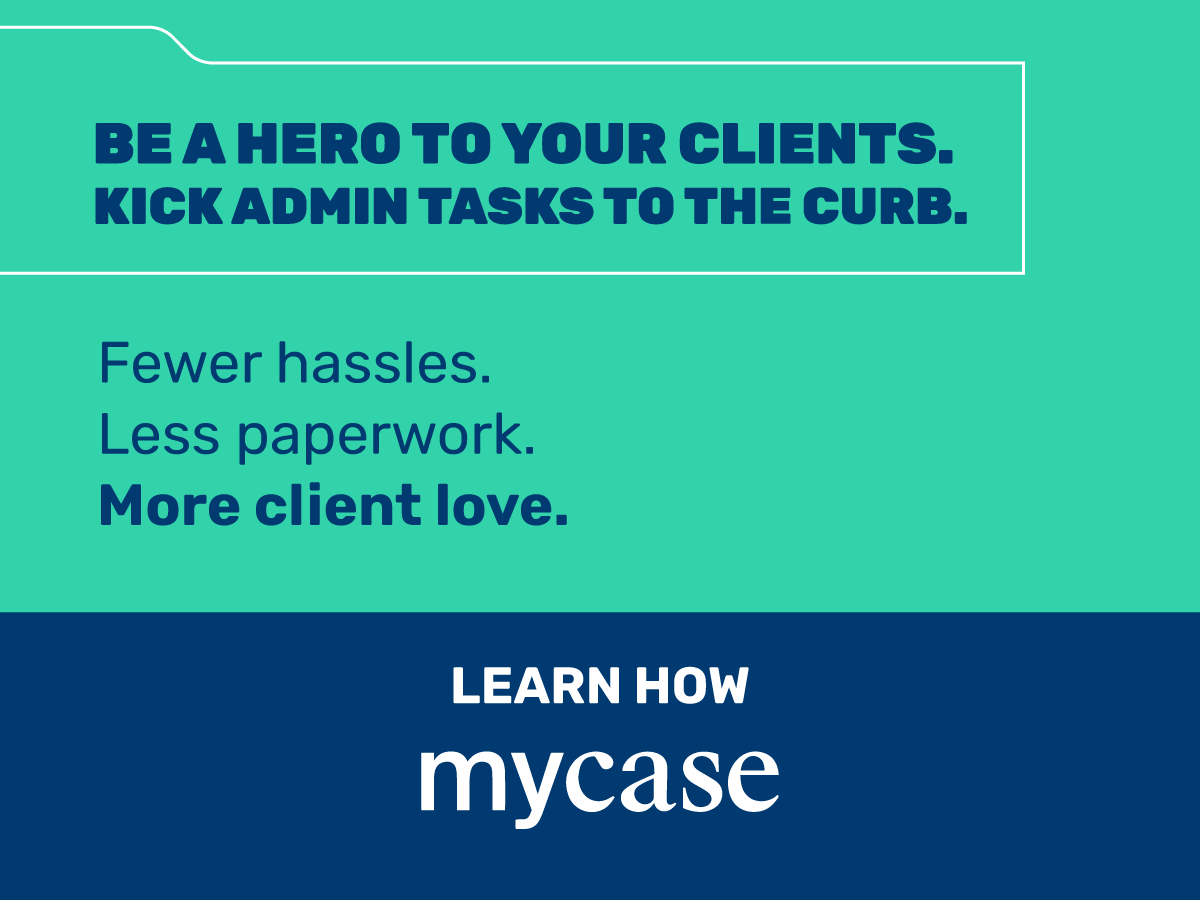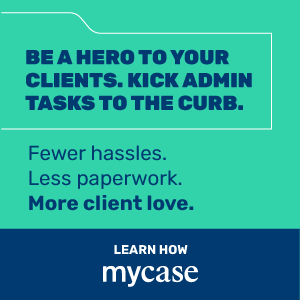According to statistics collected by Donald E. Wetmore, JD, Founder of The Productivity Institute, the average person is interrupted once every eight minutes — 50 to 60 times per day. Over the course of an eight-hour workday, that means an entire hour could be spent texting or scrolling social media instead of focusing on your job.
The hybrid and remote work environments have only exacerbated the problem. With few or no people at the office every day, it’s become infinitely more difficult to ensure all your employees are staying on task or meeting their goals. That’s why time management is such a key skill for everyone at your firm — from managing partner to legal assistant.
“The most important aspect of the day-to-day is time management,” says Sarah Tetlow, Productivity Strategist and Founder of Firm Focus, and an Independent member. “[Legal is] a very competitive industry, so without time management skills by everyone in the firm, they will lose clients and employees.”
In the legal industry, where lawyers and staff have numerous projects happening at once, it can be hard to pinpoint the most effective ways to go about getting them done. Add in the work-from-home aspect with its myriad distractions, and you have a recipe for an inefficient and unproductive employee.
HYBRID WORK: PRODUCTIVITY OBSTACLE OR BOON?
It’s no secret that the legal industry is slow to adapt to change, so when the pandemic hit, firms had to adjust in ways many are still getting used to. Much to the chagrin of some, gone are the days of stopping by a colleague’s office to ask a question or making small talk in the breakroom.
Firms have also needed to revisit their reliance on paper and physical documents. “The industry is still very paper-heavy,” says Tetlow. “Even firms that are ‘paperless’ are not ‘paper-free.’” The shift toward working online caused many to struggle, particularly with recognizing and prioritizing the files they had to work on.
But not every firm found the transition to remote work to be a negative one. Suzette Welling, CLM, Chief Administrative Officer at Bartlett, Loeb, Hinds & Thompson, PLLC, President of Law Practice Edge, LLC, and member of the Suncoast Chapter, recalls how communication at her former firm actually increased at the onset of the pandemic.
“The most important aspect of the day-to-day is time management. [Legal is] a very competitive industry, so without time management skills by everyone in the firm, they will lose clients and employees.”
“When you’re at the office, everybody’s head down, working,” Welling says. “Once we got remote, we were more intentional about maintaining connection and relationships with everyone in the firm. I found that I actually had more face time with people when we all went remote.”
Now as firms try to bring people back to the office, it can sometimes be a herculean effort to convince employees to give up their time at home. “The partners who pre-COVID never would have worked remotely now have discovered they like working remotely, and [I have to tell them,] ‘Hey, people need to see your face once in a while,’” Welling says.
Commuting is also a huge factor in productivity and time management, Tetlow says. During remote work, “we all saved so much time not commuting into work, and we very quickly found something else to fill that time. Going back to the office is a struggle as people are losing something outside of their office life.”
Tetlow encourages people to be productive during their commutes, whether that means reading through a brief on the train or listening to a podcast while driving. “Maximize that time with something that you would do otherwise sitting at your desk,” she says.
SHARPEN YOUR TIME MANAGEMENT SKILLS
Whether your firm is hybrid, remote or fully back in the office, here are seven ways to ensure you, your attorneys and your staff are maximizing your time at work.
1. Communicate
A successful office environment often boils down to one thing: communication. With the now-ubiquitous use of programs such as Teams and Slack, reaching a colleague has never been easier. But those messages can (and should) be supplemented by regular meetings, whether one-on-one, as a team or with the whole staff. This way, managers can keep track of everyone’s workloads without having to guess their status.
Tetlow also advocates instituting a “red, yellow, green” system, with red meaning the employee has a full plate and green meaning they’re open to more work. At the start of each week, everyone on the staff announces which color they fall under that week, ensuring that no one gets overwhelmed or bored. Of course, Tetlow adds, each firm can adapt this system in a way that works best for them.
2. Prioritize
When every client needs something done (and now!), it can seem like every assignment should be priority number one. But it’s incumbent upon the attorney, potentially with your help, to decide what needs immediate attention and what can wait on the back burner for a while. Make sure they communicate this to the client along with an expected deadline for the work to be done.
3. Eliminate Distractions
Distractions and interruptions are the ultimate enemy of productivity, especially when working from home. Phones, watches, TVs, children, that annoying neighbor upstairs and so much more can keep you from focusing on your work. Set aside time to turn the electronics off — yes, this means silencing email and Slack notifications, too — so that you’re not tempted to look away or multitask. (There might not be much you can do about that neighbor, though.)
4. Get Rid of Perfectionism
While striving for perfection is admirable, that goal can often lead to procrastination and misplaced priorities. Make sure your employees know that while getting things right is necessary, perfection is not if it means taking undue time on a task that should have already been done.
“Sometimes, when attorneys are working on a brief, perfectionism can play into taking way too much time on something,” Tetlow says. “Good and done is better than perfect and pending.”
5. Employ a Document Management System (DMS)
A DMS can be an immensely helpful tool to keep track of the many files your firm works with every day. “Firms absolutely have to have a DMS that is organized, has globalization in the naming features, has search functions they can rely on and has processes in place that everything is getting saved immediately digitally,” says Tetlow.
“Sometimes, when attorneys are working on a brief, perfectionism can play into taking way too much time on something. Good and done is better than perfect and pending.”
Some firms use case management software to track assignments and deadlines, but Welling says she uses Microsoft OneNote for her short-term to-do list and a Trello board for bigger projects, such as the upcoming opening of a new office location at her firm.
6. Ensure Accountability
Because attorneys and paralegals bill for their time, you can tell pretty quickly if someone’s hours are down and they’re not getting their work done, Welling says. However, it may be harder to know when legal assistants and other staff are either overwhelmed or bored, especially if your firm doesn’t make them track their hours too. In that case, every staff member should feel empowered to speak up and inform their manager of their status.
7. Show Compassion
Just because legal is a demanding industry doesn’t mean there’s no room for grace and flexibility. Research shows that feeling valued is one of the top reasons employees are happy and productive in their jobs. Hybrid work has only increased the opportunities for managers to show compassion toward moms with small children and employees taking care of aging parents, for example.
“I think the hybrid model really does give us as employers an opportunity to show our employees we care about them,” Welling says. “Give them a little flexibility. If we want them to act like professionals, we need to treat them like professionals.”
Again, communication is key — touch base regularly with your employees to determine what support they may need.
USE TOOLS PRODUCTIVELY
“Productive people are productive because they use tools to keep them on track,” Tetlow says. With those tools in place — whether it’s by using the “red, yellow, green” system, a DMS, time-tracking software for administrative staff or all the above — your employees can become examples of productive and effective time managers.


